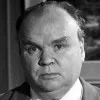Like the Athenian miser, who was wont
To meet men’s curses with a hero’s front:
“Folks hiss me,” said he, “but myself I clap
When I tell o’er my treasures on my lap.”[Ut quidam memoratur Athenis
sordidus ac dives, populi contemnere voces
sic solitus: ‘populus me sibilat, at mihi plaudo
ipse domi, simul ac nummos contemplor in arca.’]Horace (65-8 BC) Roman poet, satirist, soldier, politician [Quintus Horatius Flaccus]
Satires [Saturae, Sermones], Book 1, # 1, “Qui fit, Maecenas,” l. 64ff (1.1.64-67) (35 BC) [tr. Conington (1874)]
(Source)
(Source (Latin)). Alternate translations:Such one we reade of in olde tyme, that dwelte in Athins towne,
A man in substance passinge rytche, nathlesse a niggerde cloune,
At whose scarceheade, and covetyce the worlde did outas make,
But all in vayne, he forste it not, he sought not howe to slake
Blacke fame, that frisked everye wheare, and bounsed at ytche eare,
"A figge for them (brasen face) I force not howe I heare,
"They hauke, they hem, they hisse at me, I weygh it not an hawe,
"Whilste I may harbor in mine arke, and lodge wythin my lawe
"My darlynge goulde, my leaves gueste, my solace and my glee,
"He is the bone companion, its he that cheares up me."
[tr. Drant (1567)]Thus that Athenian Monster Timon, which
Hated Man-kind, a sordid Knave, but rich,
Was wont to say, When ere I walk abroad
The People hiss me, but I do applaud
And hug my self at home, when I behold
My chests brim-full with Silver and with Gold.
[tr. A. B.; ed. Brome (1666)]Since He, as the Athenian Chuff, will cry
The People hiss me, True, but what care I?
Let the poor fools hiss me where e're I come,
I bless my self to see my bags at home.
[tr. Creech (1684)]At Athens liv'd a wight, in days of yore,
Though miserably rich, yet fond of more,
But of intrepid spirit to despise
The abusive crowd. "Let them hiss on," he cries,
" While, in my own opinion fully blest,
I count my money, and enjoy my chest."
[tr. Francis (1747)]Self-cursed as that same miser must have been,
Who lived at Athens, rich as he was mean, --
Who, when the people hiss'd, would turn about
And drily thus accost the rabble-rout:
"Hiss on; I heed you not, ye saucy wags,
While self-applauses greet me o'er my bags."
[tr. Howes (1845)]As a certain person is recorded [to have lived] at Athens, covetous and rich, who was wont to despise the talk of the people in this manner: “The crowd hiss me; but I applaud myself at home, as soon as I contemplate my money in my chest.”
[tr. Smart/Buckley (1853)]As wretched as, at Athens, some rich miser was, who (as they say) was wont to thus despise what people said of him: "Aha ! the Public hiss, but in my heart I say I m right, directly that I gaze upon the coins in my strong-box."
[tr. Millington (1870)]He is like a rich miser in Athens who, they say, used thus to scorn the people's talk: "The people hiss me, but at home I clap my hands for myself, once I gaze on the moneys in my chest."
[tr. Fairclough (Loeb) (1926)]Like the man they tell of
In Athens, filthy but rich, who despised the voice
Of the people and kept saying, "So! The citizens hiss at me!
Ah! But I applaud myself alone at home
When I gaze on the coins in my strongbox."
[tr. Palmer Bovie (1959)]They're like an Athenian I heard about
Rich and stingy, he thought nothing of the people's snide remarks,
and always said, "They hiss me, but I applaud myself
at home, as soon as I lay eyes on the money in my chest."
[tr. Fuchs (1977)]As the Athenian miser
Is said to have answered, when citizens
Mocked him: "They hiss me, but at home I
Applaud myself, counting the coins in my safe."
[tr. Raffel (1983)]Like that one
about whom the story was told in Athens:
stingy and rich, he used to express
his scorn of the people’s jibes with these words:
"The people may hiss me, but at home
I applaud myself as I contemplate
my gold in the strongbox."
[tr. Alexander (1999)]He’s like the miser in Athens
who scorned, it’s said, what people thought of him.
“They hiss me in the streets, but once I’m home
I stare at my bright coffers and applaud
myself.”
[tr. Matthews (2002)]He's like the rich
Athenian miser who treated the people's remarks with contempt.
"The people hiss me," he would say, "but I applaud myself
when I reach home and set eyes on all the cash in my box!"
[tr. Rudd (2005 ed.)]Like the rich Athenian miser
Who used to hold the voice of the crowd in contempt:
"They hiss at me, that crew, but once I’m home I applaud
Myself, as I contemplate all the riches in my chests."
[tr. Kline (2015)]
Quotations about:
public
Note not all quotations have been tagged, so Search may find additional quotes on this topic.
The public is governed according to its own ways of thinking. It has the right to talk nonsense, as the ministers have the right to enact it.
[Le public est gouverné comme il raisonne. Son droit est de dire des sottises, comme celui des ministres est d’en faire.]
Nicolas Chamfort (1741-1794) French writer, epigrammist (b. Nicolas-Sébastien Roch)
Products of Perfected Civilization [Produits de la Civilisation Perfectionée], Part 1 “Maxims and Thoughts [Maximes et Pensées],” ch. 8, ¶ 503 (1795) [tr. Merwin (1969)]
(Source)
(Source (French)). Alternate translations:The public is governed as it reasons. It is its right to say foolish things, as it is that of the ministers to do them.
[tr. Hutchinson (1902), "The Cynic's Breviary"]The public is governed as it reasons; its own prerogative is foolish speech & that of its governors is foolish action.
[tr. Mathers (1926)]The public is governed in the same way as it reasons. Its prerogative is to utter foolish things, as that of ministers is to commit them.
[tr. Pearson (1973)]The public is governed as it reasons. It's right is to say foolish things, like that of ministers of state is to do them.
[tr. Siniscalchi (1994), ¶ 502]People are now goverened in the way they want. They've won the right to think -- and ministers to act -- foolishly.
[tr. Parmée (2003)]
The essence of our American tradition of State and local governments is the belief expressed by Thomas Jefferson that Government is best which is closest to the people. Yet that belief is betrayed by those State and local officials who engage in denying the right of citizens to vote. Their actions serve only to assure that their State governments and local governments shall be remote from the people, least representative of the people’s will and least responsive to the people’s wishes.
Lyndon B. Johnson (1908-1973) American politician, educator, US President (1963-69)
Letter (1965-03-15), “Special Message to the Congress on the Right to Vote”
(Source)
Only about 1 percent of my writings are concerned with sex, but the conventional public is so obsessed with sex that it hasn’t noticed the other 99 percent of my writings.
Bertrand Russell (1872-1970) English mathematician and philosopher
Interview by Woodrow Wyatt, BBC TV (1959)
(Source)
Collected in Bertrand Russell's BBC Interviews (1959) [UK] and Bertrand Russell Speaks His Mind (1960) [US]. Reprinted (abridged) in The Humanist (1982-11/12), and in Russell Society News, #37 (1983-02).
What is the reason that we laugh so freely in a theatre but are ashamed to weep? Is it less natural to be melted by what excites pity than to burst into laughter at what is comical? […] It is not thought odd to hear a whole theatre ring with laughter at some passage of a comedy, but, on the contrary, it implies that it was funny, and very naturally performed; therefore the extreme restraint every one puts on himself not to shed tears and the affected laughter with which one tries to disguise them, clearly prove that the natural result of lofty tragedy should be to make us all weep without concealment and publicly, and without any other hindrance than wiping our eyes.
[D’où vient que l’on rit si librement au théâtre, et que l’on a honte d’y pleurer? Est-il moins dans la nature de s’attendrir sur le pitoyable que d’éclater sur le ridicule? […] Comme donc ce n’est point une chose bizarre d’entendre s’élever de tout un amphithéâtre un ris universel sur quelque endroit d’une comédie, et que cela suppose au contraire qu’il est plaisant et très naïvement exécuté, aussi l’extrême violence que chacun se fait à contraindre ses larmes, et le mauvais ris dont on veut les couvrir prouvent clairement que l’effet naturel du grand tragique serait de pleurer tous franchement et de concert à la vue l’un de l’autre, et sans autre embarras que d’essuyer ses larmes, outre qu’après être convenu de s’y abandonner.]
Jean de La Bruyère (1645-1696) French essayist, moralist
The Characters [Les Caractères], ch. 1 “Of Works of the Mind [Des Ouvrages de l’Esprit],” § 50 (1.50) (1688) [tr. Van Laun (1885)]
(Source)
(Source (French)). Alternate translations:What's the reason that we laugh so freely, and are asham'd to weep at the Theatre? Is Nature less subjects to be soften'd by pity, than to burst forth at what is Comical? [...] We must suppose 'tis the natural effect of a good Tragedy, to make us Weep freely in sight of the whole Audience, without any other trouble than drying our Eyes, and wiping our Faces. It being no more ridiculous to be seen Weeping, than to be heard to Laugh by the whole Theatre: On the contrary, we then conclude there was something acted very pleasantly, and to the life; and the restraint a man puts on him∣self to hide his tears, by an affected Grimace, plainly demonstrates that he ought not to resist the main design of a Tragedy, but give way to his Passions, and discover em as openly, and with as much confidence, as at a Comedy.
[Bullord ed. (1696)]What is the reason we laugh so freely, but are asham'd to weep at the Theatre? Is Nature less subject to be soften'd by Pity, than to burst out into Laughter at what is Comical? [...] As therefore 'tis thought no odd thing to hear the whole Amphitheatre ring with an Universal Laughter, at some passage of a Comedy; butr on the contrary, implies something was pleasantly said, and naturally perform';d; so the extreme violence which every one offers to himself in constraining his Tears, and disguising ;em with affected Grimaces, clealry prove that the Natural Effect of good Tragedy is to make us weep with all freedom, and in concert, in another's sight, and wihtout any other disturbance than wiping our Eyes.
[Curll ed. (1713)]Why is it that we laugh so freely at the theatre and yet are ashamed to weep there? Is it less natural to be moved by what is pitiful than to be amused by what is ridiculous? [...] Since then it is no unusual thing to hear a whole theatre break into unanimous laughter at some passage in a comedy, since this implies, on the contrary, that it is amusing and extremely life-like, so the extreme violence we do to our feelings by restraining our tears, and the false laughter with which we try to conceal them, clearly proves that the natural effect of great tragedy should be to make us all weep quite openly, with one accord, in one another’s presence, with no further concern than to wipe our eyes.
[tr. Stewart (1970), "Of Books"]
ORESTES: A terrible thing is the mob, whenever it has villains to lead it.
PYLADES: But with honest leaders its counsels are always honest.[Ὀρέστης: δεινὸν οἱ πολλοί, κακούργους ὅταν ἔχωσι προστάτας.
Πυλάδης: ἀλλ᾽ ὅταν χρηστοὺς λάβωσι, χρηστὰ βουλεύουσ᾽ ἀεί.]Euripides (485?-406? BC) Greek tragic dramatist
Orestes, ll. 772-773 [Orestes] (408 BC) [tr. Coleridge (1938)]
(Source)
Original Greek. Alt. trans.:ORESTES: Ah, my friend! When mobs have rotten leaders they are likely to do all sorts of nasty things.
PYLADES: It's a very different story when their leaders are wise, though ....
[tr. Theodoridis (2010)]ORESTES: The mob is frightening when their leaders are criminal.
PYLADES: But when they have good one, their decisions are good.
[tr. Luschnig (2013)]ORESTES:
The mob is nasty, when it has leaders
bent on doing wrong.
PYLADES:
But when it’s controlled
by decent men, the decisions they make
are always good.
[tr. Johnston (2020), ll. 938-940]The masses are terrible whenever they have scoundrels as leaders.
[tr. @sententiq (2020)]
It’s a police mantra that all members of the public are guilty of something, but some members of the public are more guilty than others.
But public opinion, because of the tremendous urge to conformity in gregarious animals, is less tolerant than any system of law. When human beings are governed by “thou shalt not,” the individual can practice a certain amount of eccentricity: when they are supposedly governed by “love” or “reason,” he is under continuous pressure to make him behave and think in exactly the same way as everyone else.
George Orwell (1903-1950) English writer [pseud. of Eric Arthur Blair]
Essay (1946-09), “Politics vs. Literature: An Examination of Gulliver’s Travels,” Polemic, No. 5
(Source)
The death of democracy is not likely to be an assassination from ambush. It will be a slow extinction from apathy, indifference, and undernourishment.
Robert M. Hutchins (1899-1977) American educator and educational philosopher
Great Books: The Foundation of a Liberal Education (1954)
(Source)
For in a republic, who is “the Country”? Is it the Government which is for the moment in the saddle? Why, the Government is merely a servant — merely a temporary servant; it cannot be its prerogative to determine what is right and what is wrong, and decide who is a patriot and who isn’t. Its function is to obey orders, not originate them. Who, then, is “the country?” Is it the newspaper? Is it the pulpit? Is it the school-superintendent? Why, these are mere parts of the country, not the whole of it; they have not command, they have only their little share in the command. They are but one in the thousand; it is in the thousand that command is lodged; they must determine what is right and what is wrong; they must decide who is a patriot and who isn’t.
In a virtuous community men of sense and principle will always be placed at the head of affairs. In a declining state of public morals men will be so blinded to their true interests as to put the incapable and unworthy at the helm. It is therefore vain to complain of the follies or crimes of a government. We must lay the hands on our own hearts and say, Here is the sin that makes the public sin.
In this respect, the freedom of the press is certainly for the state machine what the safety-valve is for the steam-engine. For by means of it, every dissatisfaction is at once ventilated in words and such grievance is soon exhausted if in it there is not very much substance. If, however, there is, then such ventilation is a good thing and enables the matter to be known in time and to be put right. This is very much better than forcing down the grievance so that it simmers, ferments, expands, and finally ends in an explosion.
[In dieser Hinsicht ist allerdings für die Staatsmaschine die Preßfreiheit Das, was für die Dampfmaschine die Sicherheitsvalve: denn mittelst derselben macht jede Unzufriedenheit sich alsbald durch Worte Luft, ja wird sich, wenn sie nicht sehr viel Stoff. hat, an ihnen erschöpfen. Hat sie jedoch diesen, so ist es gut, daß man ihn bei Zeiten erkenne, um abzuhelfen sehr viel besser, als wenn die Unzufriedenheit eingezwängt bleibt, brütet, gährt, kocht und anwächst, bis sie endlich zur Explosion gelangt.]
Arthur Schopenhauer (1788-1860) German philosopher
Parerga and Paralipomena, Vol. 2, ch. 9 “On Jurisprudence and Politics [Zur Rechtslehre und Politik],” § 127 (1851) [tr. Payne (1974)]
(Source)
(Source (German)). Alternate translation:Freedom of the press is to the machinery of the state what the safety-valve is to the steam engine: every discontent is by means of it immediately relieved in words -- indeed, unless this discontent is very considerable, it exhausts itself in this way. If, however, it is very considerable, it is as well to know of it in time, so as to redress it.
[tr. Hollingdale (1970)]
The first principle of a free society is an untrammeled flow of words in an open forum.
Adlai Stevenson (1900-1965) American diplomat, statesman
Speech (1961-01-18), US Senate Committee on Foreign Relations, Washington, DC
(Source)
Statement given by Stevenson after his nomination by President-elect Kennedy to be ambassador to the United Nation, which office he held until his death in 1965. The speech (or this passage) is often cited to the New York Times coverage of it the following day, though often mistakenly dating it in 1962.
In context, he is addressing criticisms of the UN as a "debating society," noting that the US Congress often serves as such, from which he extends this principle.
You may fool all the people some of the time; you can even fool some of the people all the time; but you can’t fool all of the people all the time.
Abraham Lincoln (1809-1865) American lawyer, politician, US President (1861-65)
(Attributed)
A possible precursor to this quote is the widely-republished Jacques Abbadie, "Traité de la Vérité de la Religion Chrétienne," ch. 2 (1684): "One can fool some men, or fool all men in some places and times, but one cannot fool all men in all places and ages. [… ont pû tromper quelques hommes, ou les tromper tous dans certains lieux & en certains tems, mais non pas tous les hommes, dans tous les lieux & dans tous les siécles.]" A similar passage was used in Denis Diderot and Jean le Rond d’Alembert, ed., Encyclopédie: ou Dictionnaire Raisonné des Sciences, des Arts et des Métiers, Vol. 4 (1754).
First attributed to Lincoln by Fred F. Wheeler, interviewed in the Albany Times (8 Mar 1886): "You can fool part of the people some of the time, you can fool some of the people all of the time, but you cannot fool all the people all of the time."
First cited in detail in Alexander K. McClure, “Abe” Lincoln’s Yarns and Stories, (1904), in the above form; it was cited as a speech in Clinton, Ill. (2 Sep 1858), but the passage is not found in any surviving Lincoln documents. No Lincoln reference is found in contemporary writings.
Also attributed to P.T. Barnum and Bob Dylan. See also Lawrence J. Peter. More detailed discussion of the quotation can be found here.
If it has to choose who is to be crucified, the crowd will always save Barabbas.
[S’il faut choisir un crucifié, la foule sauve toujours Barabbas.]
Jean Cocteau (1889-1963) French writer, filmmaker, artist
“Le Coq et l’Arlequin” (1918), Le Rappel à l’ordre (1926)
(Source)
All politics is based on the indifference of the majority.
James "Scotty" Reston (1909-1995) Scottish-American journalist and editor
“New York: Rockefeller Comes Out of His Trance,” New York Times (12 Jun 1968)
(Source)
This is cited in multiple places to this 1968 op-ed, to which I don't have access. Reston also used the phrase in this 1972 op-ed.
Were I called upon to decide whether the people had best be omitted in the Legislative or Judiciary department, I would say it is better to leave them out of the Legislative. The execution of the laws is more important than the making them.
Thomas Jefferson (1743-1826) American political philosopher, polymath, statesman, US President (1801-09)
Letter (1789-07-19) to Abbé Arnoux
(Source)






















